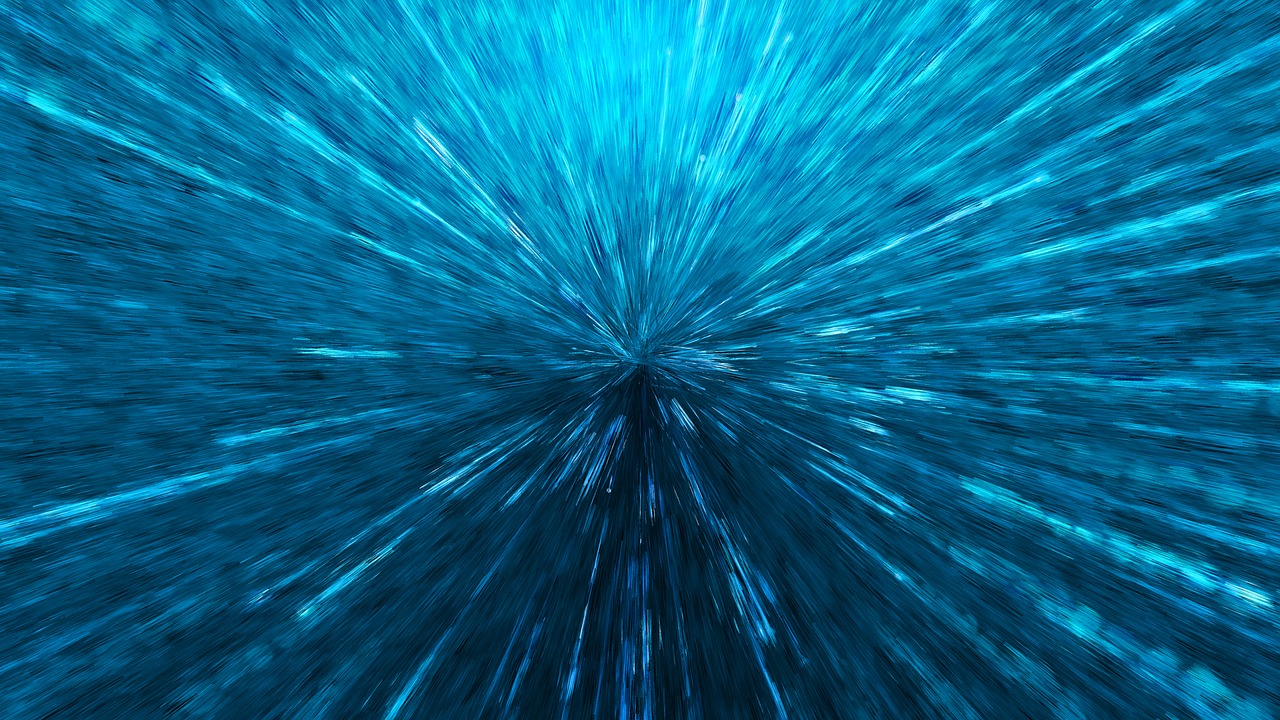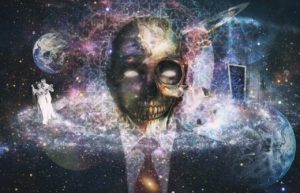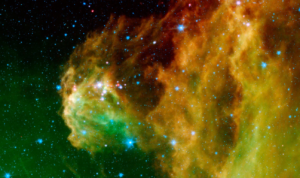Stephen Woodford, a YouTuber known as Rationality Rules has produced another video trying to take down The Kalam Cosmological Argument. This one doesn’t attack the argument itself, but goes after one of the pieces of evidence that establish one of the premises.
Again, for the uninitiated, The Kalam Cosmological Argument goes as follows
1: Whatever begins to exist has a cause.
2: The universe began to exist.
3: Therefore, the universe has a cause.
And once these two premises are reached one can do a conceptual analysis of what properties the cause of the universe would have. Doing a conceptual analysis brings you to the conclusion that a spaceless, timeless, immaterial, uncaused, powerful, personal Being brought the universe into being. Space doesn’t permit me to go into the conceptual analysis, so check out other blog posts where I talk about this such as “My 5 Favorite Arguments For God’s Existence”, “The Kalam Cosmological Argument”, or “The Kalam Cosmological Argument NOT Debunked – Response To YouTuber Rationality Rules”.
I have refuted Rationality Rules’ (RR’s) other attempts to undermine theistic arguments in previous posts (see here and here). In this video, titled “The Big Bang Debunked (Ex Nihilo Model)” In this video, Woodford tries to argue that The Big Bang Theory does not have the startling implications that I and many others think it has; namely that the universe began to exist out of nothing.
“The Big Bang Debunked – Ex Nihilo Model”
Most of the video is simply RR giving a history and the scientific evidence for the big bang. Most of this is correct and indisputable. The errors begin at around 6 minutes in which he argues that The Big Bang is not the beginning of the universe out of nothing.
He first plays a clip of Blake Giunta in a debate with Matthew Dillahunty and then a clip of William Lane Craig. In both clips, Giunta and Craig both argue that the Borde-Guth-Vilenkin theorem show that the universe had a beginning, and even if our universe was just one universe that is part of a much wider multi-verse, it still had to have begun to exist (as I explain in “Does The Multi-Verse Explain Away The Need For A Creator?”)
Woodford says “”But this simply isn’t true and here Alex Guth saying as much in response to a question…”
From the interview clip:
——————
Interviewer: “What happened before? How did inflation start? How did you- whether it was 10^39 the second, but…you know, what happened before that? And where are we?”
Alexander Guth: “Well we still certainly don’t know the answer to that question and inflation makes it a particularly difficult question to answer because the gigantic expansion associated with inflation, it only, from an observational point of view essentially erases any evidence of what came before.”
—————-
After the clip plays, RR says “Now, of course, I’ve been very terse in explaining these discoveries and their very specific ramifications, and I recommend that you learn more about them at another time, but notice that while they all scream that observable universe all coalesced into a hot dense state, they do not scream that absolutely everything emerged from absolutely nothing. Sure, they fit such a hypothesis, but let me approach this with an analogy. Consider any of all the explosions we’ve ever seen. If we existed on any fragment of this exploded bomb, would we be able to deduce by, say, the redshifting of nearby fragments that once upon a time every fragment coalesced into a hot dense state? Would we be justified in asserting that we know that the singularity from absolutely nothing? Of course not. We’d have to say ‘we don’t know what happened during the earliest state’. …The answer to the question ‘Did the universe begin to exist’ is not yes … it’s ‘we don’t know'”
Rationality Rules then plays a clip from some space documentary where a guy says “We are totally clueless about what happened before the universe began to expand.”
My Response:
To me, it sounds a lot like Stephen Woodford’s/Rationality Rules’ rebuttal can be boiled down to “We don’t know what caused the universe to begin to exist, but we know it can’t be God! Just give science some time and we’ll figure out an explanation that doesn’t appeal to a Creator”. In other words, it seems like the entire video is one big Escape To The Future fallacy.
Now, it is true that scientists are not aware of what the very, very earliest moments of the universe were like (known in the literature as The Planck Time), but that fact does not entail that we cannot conclude whether or not the universe had a beginning. Indeed, as Craig and Giunta have said in the cited video clips, the Borde-Guth Veliken theorem shows that the universe had a beginning REGARDLESS of what the early conditions were like.
As Vilenkien put it in the interview clip quoted above, Velinken basically just asserts that they don’t know what the earliest moments of the universe were like. But this isn’t a denial of the universe’s ex nihilo beginning. Indeed, on page 271 of his book “Many Worlds In One” Velinken, speaking of his theorem says “It is said that an argument is what convinces reasonable men and a proof is what it takes to convince even an unreasonable man. With the proof now in place, cosmologists can no longer hide behind the possibility of a past eternal universe. There is no escape. They have to face the problem of a cosmic beginning.” (emphasis mine) Does it sound like Veliken is denying the universe had an absolute beginning to you? No. And Vilenkin is not saying that in the interview that RR played. Rather, Veliken is only asserting that no one knows what the physical state of the universe was
Moreover, Rationality Rule misleads his audience from 6:07 to 7:08. As William Lane Craig has said elsewhere, it’s not really The Borde-Guth Velinken Theorem alone that does all the work in establishing cosmic origins, but it is the theorem in conjunction with our background knowledge. Knowledge, for example, such as the fact that the universe has been expanding for the past 14 billion years, that there cannot be an eternally old mother universe that existed from eternity past spawning many babies unless it is likewise expanding (because if the mother universe were static, the babies would have become so numerous and expanded so greatly that they would have cobbled together to form what appears to be an infinitely old, infinitely large universe, in contradiction to scientific observations). These facts in conjunction with The Borde-Guth-Velinken Theorem would lead to it (the universe, mother universe, grandmother universe, or whatever) having a beginning in its finite past. Ergo, the universe probably did have a beginning (for some illustrations on why that’s the case see https://www.reasonablefaith.org/writings/question-answer/honesty-transparency-full-disclosure-and-the-borde-guth-vilenkin-theorem/?fbclid=IwAR3Kqo4jtG2Y3KYQzcdgkDEJ0BKQqEwacYAQ8dmMhgyfw6SEMZRxA8_Prvw)
So, even if some physical reality before the big bang existed (A Mother Universe, A Grandmother Universe, An Alien Simulation), that needn’t imply that the universe as a whole (by which I mean the entirety of physical reality, ALL matter, ALL energy, ALL space and time) didn’t have a beginning. As pointed out above, the only way to avoid the baby universes multiplying and expanding to the point that they coalesce into what appears to be an infinitely old, infinitely large universe is if the mother itself is expanding. And if the mother is expanding, Veliken’s theorem is applicable to it. And if you want to posit that the mother was a baby of a grandmother universe, the problem is only pushed back. So what Guth says doesn’t really contradict what Dr. Craig says. It’s the same thing with 8:35 to 8:41. Ironically, Rationality Rules himself makes the equivocation fallacy if he’s intending to rebut Craig’s actual point.
One could think there’s some undiscovered possibility to get around the theorem’s implications and say “I don’t know” that way, but it doesn’t really alter where the evidence currently points. From what I can tell, the current evidence indicates a beginning of the universe. Thus, why I said that the video commits the escape to the future fallacy.
We must follow the evidence wherever it leads now, not where it may or may not lead in the future. If people refused to come to conclusions based on what evidence might or might not emerge in the future, no one could ever come to any conclusions! Imagine a lawyer arguing “Your honor. I know the vast majority of evidence seems to be in favor of my client’s guilt NOW, but what if future discoveries show that you’re wrong? We should wait. Science will find the answer.” Could anyone ever be convicted given the methodology that we should hold judgment on the grounds the future discoveries MAY overthrow the current conclusion? Of course not.
We need to follow the evidence where it leads now. Not where it may or may not lead in the future. The evidence currently suggests that the universe began to exist out of nothing about 14 billion years ago, and even attempts to get around this such as The Mother Universe model or the (fantastically bizarre) Alien Simulation scenario only push the beginning farther back in time. They don’t eliminate it. And since they don’t eliminate the absolute beginning of the universe, they don’t eliminate the need for a transcendent causal Agent beyond space and time.
The fact that we don’t know what went on during the Planck Time of the cosmic expansion has no bearing on whether we can know the universe began to exist nor does it have any bearing on whether we can know what caused the universe to come into existence. As an analogy to see how silly RR’s reasoning is, suppose 3,000 years ago, WAY before anyone knew anything about embryology, someone argued that humans have an absolute beginning to their existence, and pointed to real examples of women giving birth to show that humans begin their lives as babies and then grow bigger over time. Any notion that babies always existed in their mother’s womb is refuted by the fact that the farther back in time you go, the smaller the woman’s stomach gets. The Baby-Beginning-Argument proponent goes on to argue that (1) Whatever begins to exist has a cause, (2) Humans begin to exist, (3) Therefore, humans have a cause. After this, the Baby-Beginning-Argument Proponent then goes on to bolster step 3 by saying that sexual intercourse between a man and a woman is the best explanation for what the cause of babies are. Now, imagine that a skeptic comes along and says “Ah, but we have no idea what goes on inside the womb for those 9 months prior to the birth. Maybe sex isn’t the cause of babies. We can’t say that for sure since we don’t know what happened during these earliest moments.”
Obviously, such a response is absurd. The fact that they don’t know what the fetal development period was like is no reason to conclude that they don’t know whether or not humans have an absolute beginning to their existence!
Now, I realize that arguments by way of analogy are prone to attack. Detractors usually go after all the different ways that the analogy is different from what it’s compared to. But analogies are never exactly like the thing that they’re being compared to. If they were, they would cease to be analogies. The point of this analogy is that just because you don’t know what the earliest period of X was like does not entail that you (A) don’t know whether or not X had a beginning or (B) what the cause of X’s beginning was.
If you don’t like the embryonic analogy, maybe you’ll like these apples. When discussing this video in The Christian Apologetics Support Group (A Facebook Group), Robby Hales commented “….this hyper-skepticism really doesn’t apply to anything else, so why the big bang? It’s like saying we can’t know that an apple is going to fall when you drop it because we don’t know the right mathematical theorem to describe quantum mechanics. But it’s actually worse than that because with at least QM there’s a good chance we’ll figure that out. But with the big bang science literally can’t go back any further than plank time. Which is why the latest theories that come out are more philosophical and metaphysical in nature than they are scientific. So for someone like the person in this video no amount of scientific evidence will convince them because in order to be convinced they are waiting for science to explain something that is literally impossible for science to explain. The beginning of the universe just is the beginning of science. And than he posts a little snippet of Carroll stating a well-known problem with the big bang that we are waiting for the GR and QM combo to explain. But that doesn’t mean the evidence for the beginning of the universe is false or dubious. It just means they need to change the model.”
In Conclusion
Rationality Rules has yet again failed to undermine epistemological warrant for theism. His video should not be alarming to anyone who took the origin of the universe as a reason to believe that God exists.





